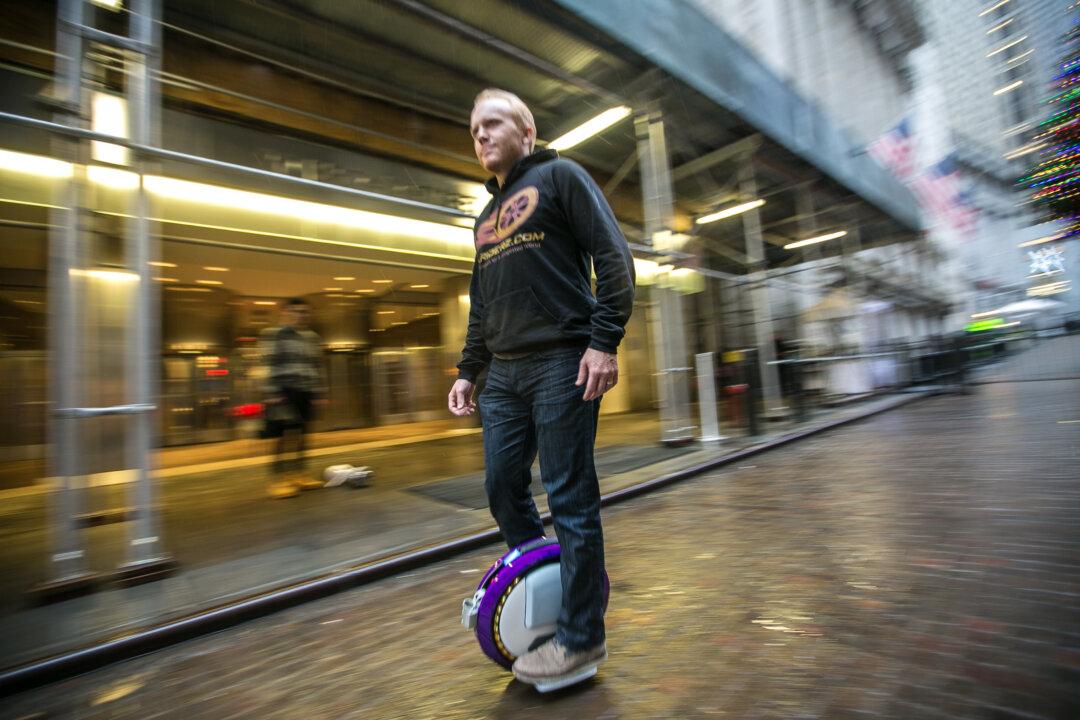Hoverboards are technically illegal in New York City, but if you ride one, or are lucky enough to get one this holiday season, chances are you have nothing to worry about.
Even though you can be fined up to $200 for riding a self-balancing board in public, the law has not been strictly enforced.
The legal status became an issue in November when the 26th Police Precinct in Harlem wrote, then deleted a tweet reminding people that hoverboards were illegal under a code—which ended up being incorrect. This led to some confusion.
The actual law that makes hoverboards illegal is under New York State Vehicle and Traffic Law, Article 14, sections 401-a and 401b that prohibits Segways and other motorized vehicles (for example, hoverboards), because they cannot be registered at the Department of Motor Vehicles. An NYPD spokeswoman confirmed that any “motorized self-balancing device” or “personal transporters” are prohibited in New York City.
The New York state motor vehicle law only applies to any county or city that has a population over 1 million—New York City is the only city that meets this criteria.
Despite the ban, enforcement has not been a priority for police and only causes confusion among riders. Some lawmakers are working on a bill that would lift the ban and end the confusion.
Not a Priority for Police
Hoverboards, also known as self-balancing scooters or mini-Segways, don’t actually hover (they have wheels) and can be ridden like a sideways skateboard, reaching speeds of about 10 miles per hour. They cost anywhere between $200 and $2,000 and are a popular gift this year—on Cyber Monday eBay sold nearly 7,500 hoverboards, or 1 every 12 seconds.
While there have been some fines issued on hoverboard use in the city, it seems that most police officers are unaware of the ban or are turning a blind eye.
Tim Haden, founder of Hoodriderz an online retailer for personalized transportation, rides his single-wheel transporter daily.





